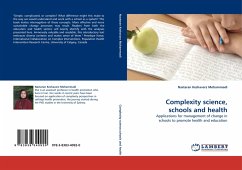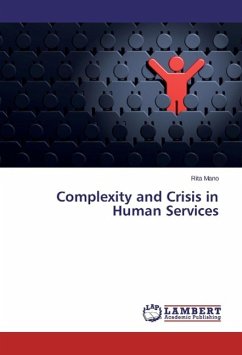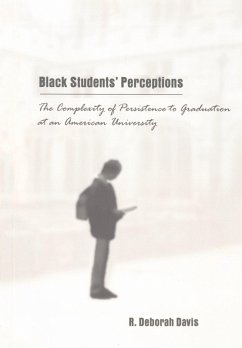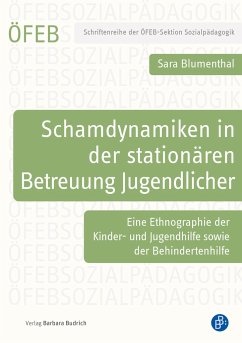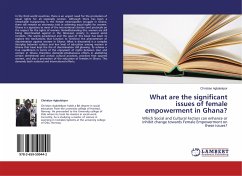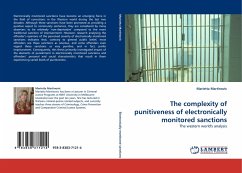
The complexity of punitiveness of electronically monitored sanctions
The western world''s analysis
Versandkostenfrei!
Versandfertig in 6-10 Tagen
45,99 €
inkl. MwSt.

PAYBACK Punkte
23 °P sammeln!
Electronically monitored sanctions have become an emerging force in the field of corrections in the Western world during the last two decades. Although these sanctions have been promoted as providing a punitive aspect to community sentences, they are considered by many observers to be relatively non-deprivative compared to the more traditional sanction of imprisonment. However, research analysing the offender s opinions of the perceived severity of electronically monitored sanctions indicates that, contrary to general public belief, most offenders see these sanctions as onerous, and some offen...
Electronically monitored sanctions have become an emerging force in the field of corrections in the Western world during the last two decades. Although these sanctions have been promoted as providing a punitive aspect to community sentences, they are considered by many observers to be relatively non-deprivative compared to the more traditional sanction of imprisonment. However, research analysing the offender s opinions of the perceived severity of electronically monitored sanctions indicates that, contrary to general public belief, most offenders see these sanctions as onerous, and some offenders even regard these sanctions as very punitive, and in fact, prefer imprisonment. Consequently, this thesis primarily investigated impact of the elements of punishment in electronically monitored sanctions and offenders personal and social characteristics that result in them experiencing varied levels of punitiveness.



